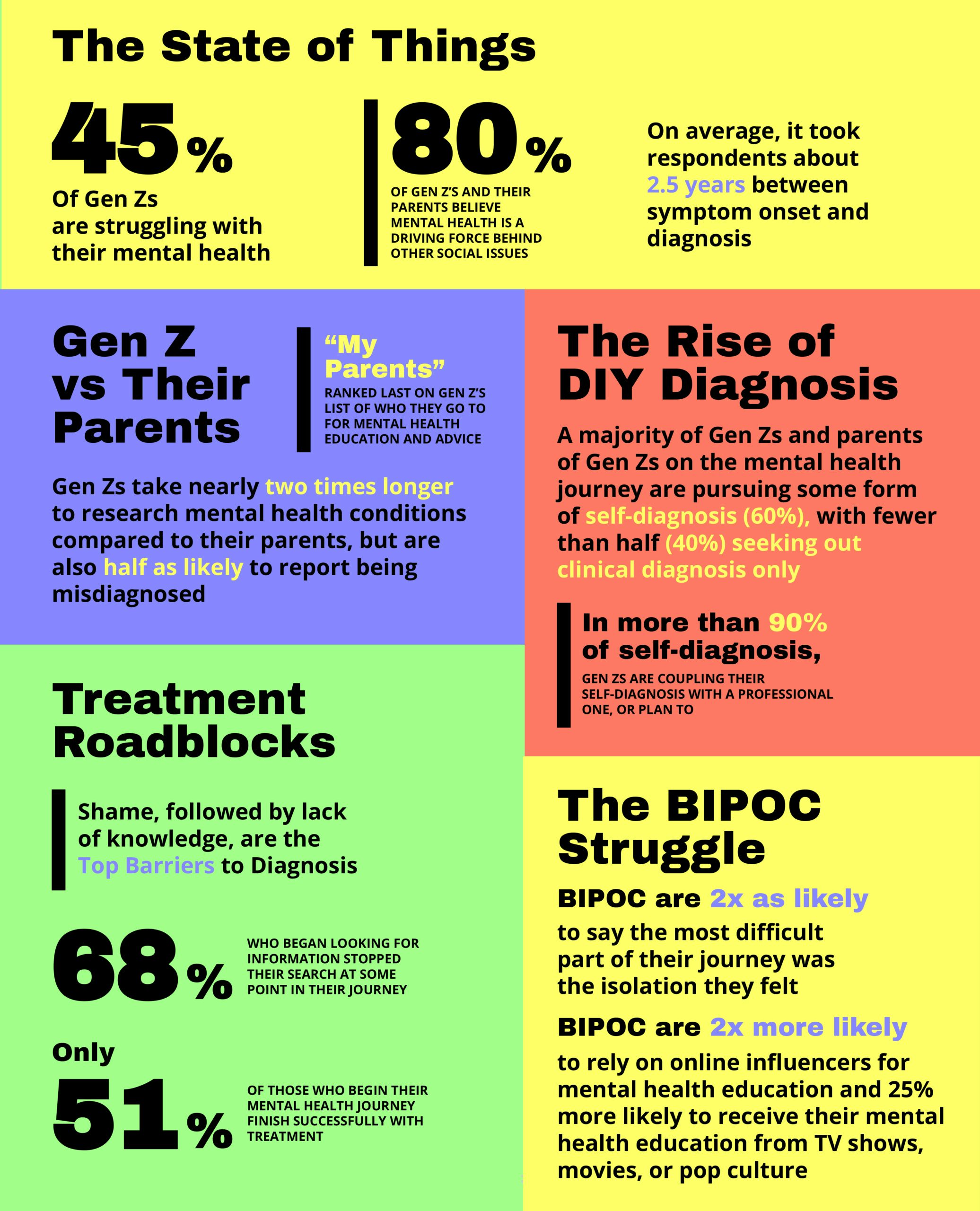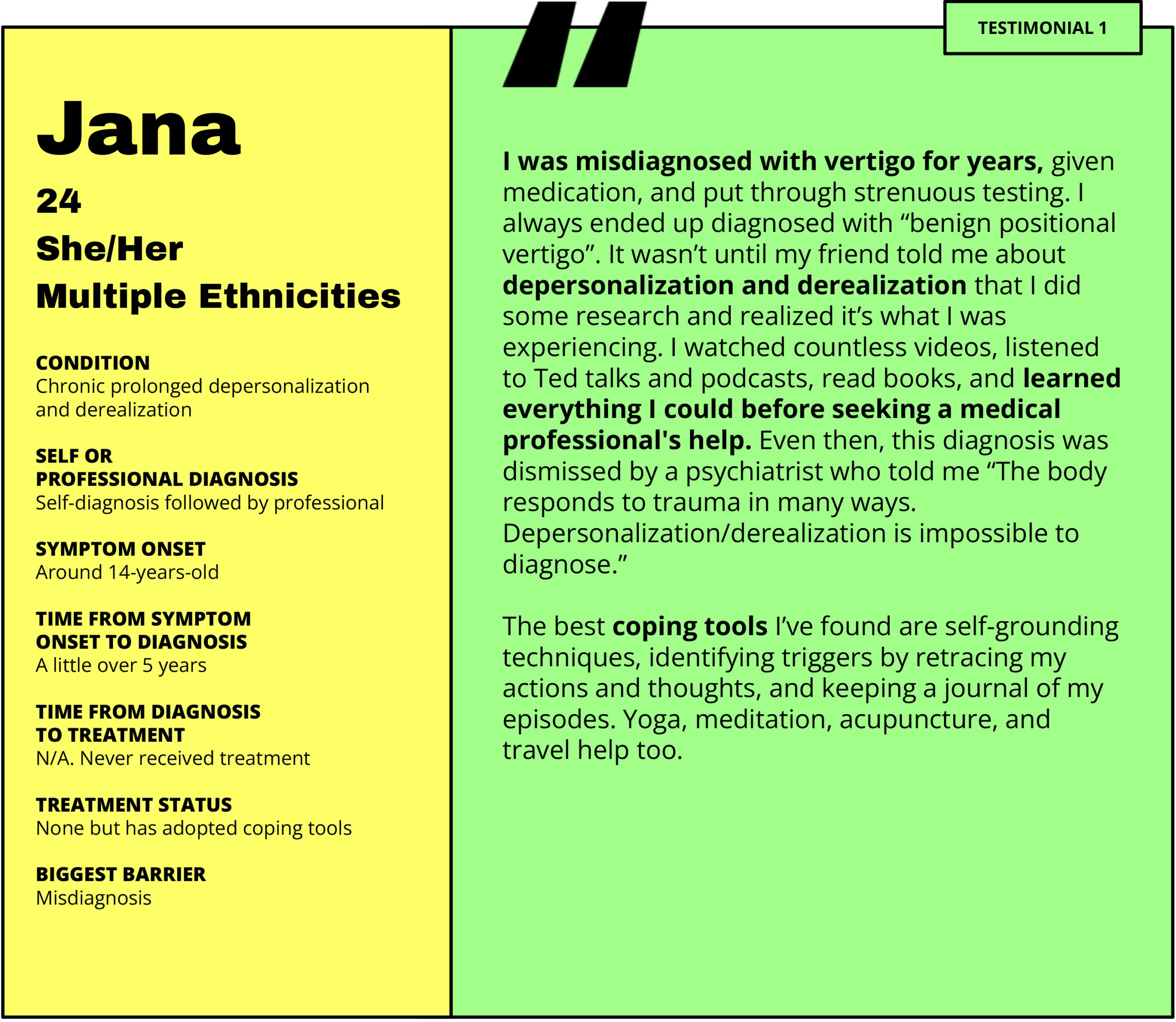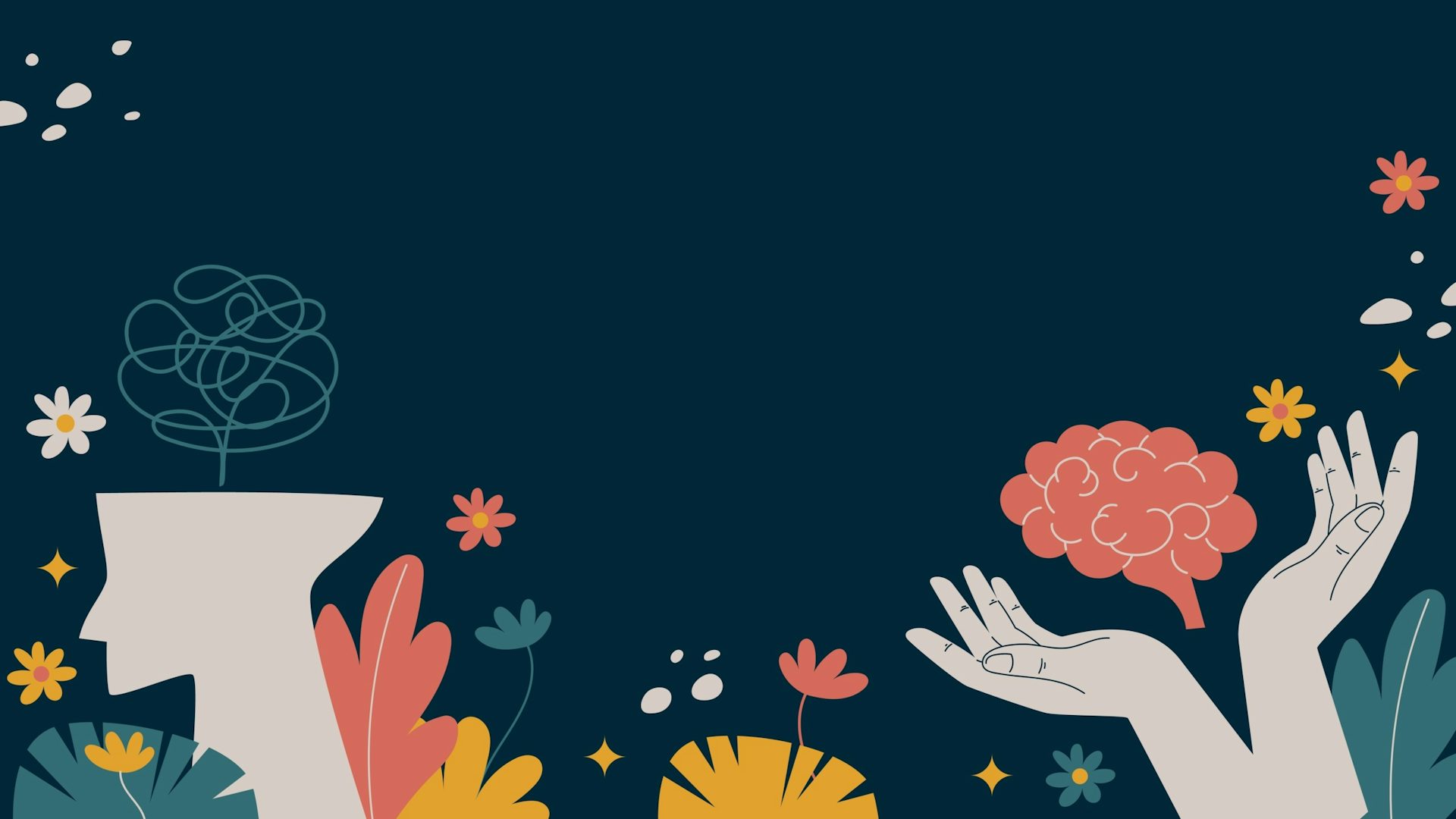How Gen Z is tackling a mental health crisis via social media
A new study from non-profit Made of Millions reveals the positive impact social media is having on a generation’s quest for mental healthcare
From fanning the flames of misinformation and extremist content to encouraging doom-scrolling and FOMO, much of contemporary online life is vilified, often for good reason. Exposure to such content can do genuine harm in a variety of ways and the connections between the addictive qualities of social media (and the dopamine hits it produces) have been laid out by psychiatrists and commentators alike. With the focus overwhelmingly on the algorithmically bad, it’s easy to forget that the internet – and in particular social media – can still be an amazing, enriching, even considerate and positive place to be.
A new study from mental health foundation Made of Millions therefore offers up some surprising conclusions regarding Gen Z’s use of digital media in their quest for better mental healthcare – and challenges many of our assumptions regarding the impact of technology, the internet and social on how people access mental health guidance.
Produced in collaboration with research partner Culture Co-Op, the Remapping Recovery report’s findings suggest that as Gen Z attempts to seek help from struggling healthcare systems, it is employing digital resources for self-diagnosis to fill the gaps, with increasingly effective results. Commenting at the launch of the report, Made of Millions’ co-founder Lauren O’Shaughnessy stated that current support systems are not only hard to navigate but often inaccessible to young people, so they are inevitably turning to non-traditional resources for help.

“Rather than demonising them for self-diagnosing or finding support online we should acknowledge that, in many cases, the internet is the best tool they have,” she said. “Remapping Recovery helps us better understand why that is and start thinking about how tech and traditional healthcare can work together to reach and aid younger generations.” Confronted with overburdened healthcare systems, platforms such as TikTok, Instagram and YouTube are presenting themselves as the best alternative.
The findings of the report make for challenging reading, given that social media so often finds itself under the spotlight when it comes to examining mental health and wellbeing within our digital world. Made of Millions surveyed 1,250 people in the US and Canada, including Gen Zs in the general population, those engaged on a mental health journey, and also the parents of young people struggling with mental health. (An additional group of over 1,700 Gen Z respondents from Made of Millions’ online communities also added to the data, says the foundation.)
@madeofmillions When we shift the blame from unhealthy systems onto “unhealthy” individuals, we fail to address why people are responding so negatively in the first place ???? #mentalhealth #learnontiktok #depression #anxiety #burnout #quietquitting #greatresignation #work #workplace #capitalism #mentalhealthadvocacy #advocacy #madeofmillionstok #healthcare #affordablehousing #workersrights ♬ original sound – Made of Millions
So what does the report uncover? Well, among its conclusions, the data produced suggests that while the majority (60%) of Gen Zs are self-diagnosing using the internet as a research tool, 90% are then looking to pair their self-diagnosis with a professional one. At the same time, Gen Z’s DIY self-diagnosis path is also proving more effective: they take nearly twice as long to research mental health conditions than their parents do, but are also half as likely to report receiving a misdiagnosis.
Similarly, the ‘diagnosis gap’ – the period from symptom onset to diagnosis – has shrunk, from decades to years. On average, it took respondents about 2.5 years to go from one to the other, with results suggesting that the overall path towards mental health recovery is now far quicker than it used to be.
Rather than demonising people for self-diagnosing or finding support online we should acknowledge that, in many cases, the internet is the best tool they have
‘The internet just does a better job than people realise, stepping in where there are gaps in people’s mental health journey,’ says Esther Fernandez, copywriter at Made of Millions. “However, we don’t paint it like it’s the cure, or it’s the only thing people should be looking towards. For us, if we know that people are turning towards the internet, how can we better [provide] these resources?”
Fernandez also suggests that society needs to question why Gen Z is turning to social media in the first place – and often getting more efficient results – rather than engaging with a primary care provider, their parents, or other more traditional resources. In the UK, the lack of access to appropriate support systems within the NHS (and other care organisations) has also become an all-too familiar experience, with a recent report from the Health Services Safety Investigations Body (HSSIB) finding that real harm is being done to people with long-term health conditions because of the complexity of the system itself.

“Looking at the mental health journey, for many young people there are a lot of misconceptions around how they even approach the internet,” says Fernandez. “A lot of older generations think that they’re very mindless with it, that they don’t check their sources, that they kind of just look at social media posts then self-diagnose and that’s the end of it.
“What our report really highlights is this very nuanced, more dualistic view that young people are actually taking, which is that the internet isn’t their one stop…. They’re self-diagnosing as a first step, but then wanting to get into more clinical spaces.”
@madeofmillions Introducing the Not So Hotline — a safe space for global venting. Dial 805-242-8368 today and leave us an honest message about your mental health! At the tone, you’ll be asked to pick a topic to vent about. Select the number that resonates the most and let loose. You can share a messed up intrusive thought. Why the holidays feel so heavy. A message to someone who helped you during dark times. Anything is fair game. Select voicemails will be shared here, on social media. Quick disclaimer: This is NOT a crisis line. We are unable to respond or provide support. For mental health emergencies, please dial 988. For submission terms, please visit http://www.madeofmillions.com/terms-of-service Ok! Vent away ☎️ #notsohotline #madeofmillionstok ♬ original sound – Made of Millions
The report also highlights the systemic issues in education, healthcare and treatment that Gen Z has been forced to deal with. In the US, the problems accessing good mental health diagnosis and treatment are varied: “People can’t even get into the therapy office in the first place,” Fernandez says. “A lot of it is just really boring – like insurance, reimbursements, all that stuff – which, again, if you are a young person, you don’t entirely know how to do.”
Despite their best intentions, parents also represent part of the issue, through a perhaps understandable tendency to simply want to fix a given mental health issue that their child might be dealing with. But this reaction isn’t necessarily wholly productive, says Fernandez.
Older generations tend to see mental health and therapy as something you do in ten sessions; you fix the problem, and then you move on
“One of our clinicians in the report [talks] about how older generations tend to see mental health and therapy as something you do in ten sessions; you fix the problem, and then you move on. Whereas I think younger generations really see mental health as like, ‘obviously I have my brain for life – I have to take care of this thing,’ you know? It’s not just an issue to be solved, it’s more like a lifestyle approach.
“The point is that [Gen Z is] spending much longer than people realise researching their symptoms, and they’re actually less likely to get misdiagnosed compared to parents who maybe don’t use as much research.” Within the report, in a list of options in response to the prompt of ‘Where to turn for mental health guidance’, Gen Z respondents ranked ‘My parents’ last.

As with the rest of the Made of Millions team, Fernandez speaks from personal experience. She has OCD and has used social media to navigate her own mental health journey. “OCD is a perfect case study for why the internet can actually be helpful, because OCD is super misrepresented in the media [and] in everyday conversation,” she says. “People don’t entirely understand it among mental health professionals, there’s so much misinformation around.”
Her own TikTok videos that she creates for Made of Millions really connect with people, too. She values “just being able to craft certain messages, knowing what people are searching for and having them resonate and seeing people respond just so positively”. This is particularly the case when people are looking into taboo topics such as a suicide, intrusive thoughts and mania, she says.
@madeofmillions Phrases like “I’m so OCD!” don’t exist in a bubble ???? It often takes OCD sufferers decades to get diagnosed because OCD is so highly misrepresented in the media, and thrown around as an adjective in day to day conversations. Many people struggle with intrusive thoughts in silence. OCD isn’t a condition they would even consider because many people use it as a synonym for being overly organized. Without knowing any better, they can engage in compulsive behaviors that actually make symptoms worse. And many people struggle with suicidality, self harm, and substance use. When those people go online and see phrases like “I let the intrusive thoughts win!” it can create a false belief that they are likely to act on their thoughts. In reality, people with OCD are the least likely to act on those thoughts. The need to perform compulsions is so strong /because/ the thoughts are so distressing and opposite to something they would ever want. Making sure we use the correct language helps to close the treatment gap. People who are struggling with intrusive thoughts deserve to know that their symptoms have a name, they’re not alone, and things can get better. For more information on OCD/intrusive thoughts, you can visit madeofmillions.com. Link in bio ???? #pureo #pureocd #ocdrecovery #intrusivethoughts #compulsions #learnontiktok #harmocd #pocd #rocd #mentalhealth #ocd #obsessivecompulsivedisorder #part3 #madeofmillionstok ♬ original sound – Made of Millions
Fernandez namechecks content creators such as Abby Sharpe whose videos call out diet culture or unhealthy weight loss tips, breaking down problematic information that promotes disordered eating and redirecting people to healthier options. Another interesting account, on Instagram, is To Write Love on Her Arms, a non-profit movement dedicated to finding help for people struggling with depression, addiction, self-injury and suicide.
“TikTok, Instagram and social media has helped a lot because I think even in some clinical spaces they can shy away from things like [this],” says Fernandez. “All these things that people don’t really talk about, but funnily enough, those are the things that feel very heavy and what people need [to talk about] the most.”
Another example on TikTok, Dr Inna, exemplifies how informed creators are in “calling out viral content that over-pathologises normal behaviors,” says Fernandez. In a video that addresses misinformation around talking to yourself and mental illness, Dr Inna “briefly explains how psychology and research works, and why the information she stitches misses the mark. She encourages people to not speak in absolutes and diagnose others on the internet. Her videos are short, but she poses important questions for people to consider when navigating information online – she also leads with an engaging hook and, tonally, isn’t afraid to be a little sassy [or] stern, which tends to resonate with young people.”
Mental health is a human experience. So it needs human approaches, which includes art and storytelling and poetry and things that can connect us and help us to empathise more
Generic Art Dad’s video on the practice of venting (and whether it’s bad for you) takes a different tack: making an argument while using the trope of the back-and-forth comedy skit. “When well-written and produced like this, it simplifies big ideas and explains them in a way that feels true to real life scenarios,” says Fernandez. “This could be a genuine interaction a young person witnesses in the classroom, but instead, it’s broken down for them on social media. This creator takes advantage of green screen and pop-overs to add credibility to what he’s saying and combat misinformation.”
Following a range of examples of online help, Fernandez is quick to point out the value of community and in-person social activities as part of a good mental health journey. “People are sometimes way too focused on the clinical,” she says, “when in reality, mental health is a human experience. So it needs human approaches, which includes art and storytelling and poetry and things that can connect us and help us to empathise more.” She advocates that workplaces, schools, parents and the healthcare industry also have a duty to help people. “Even just encouraging mental health professionals [to] get acquainted with these online platforms and learn what conversations are happening online; by doing that you get a better understanding of your clients and the demographic that you’re serving.”
As Fernandez persuasively outlines in the intro video to the report, which is free to download from the Made of Millions website, if social media is what helps start conversations, destigmatises mental health and gives young people the impetus to seek out help, then it’s really another kind of lifeline and a potentially vital part of the journey to recovery.




